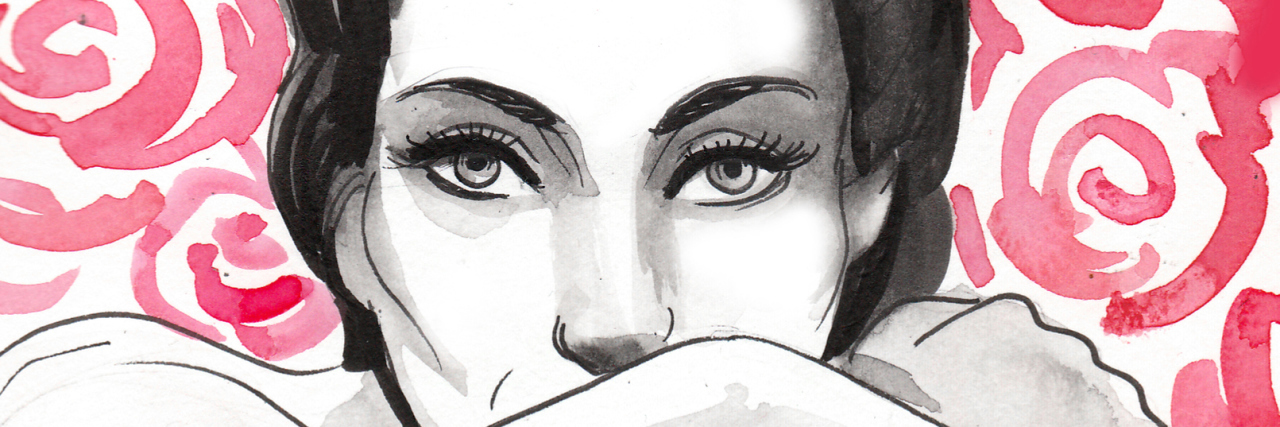I understand, I really do.
I understand that other people’s pain can be difficult, uncomfortable to witness or to talk about. I also understand that green can cloud your vision when you hear about someone else’s success or their life experiences. I understand that this contributes to why it is taboo to be genuine when talking about your life with acquaintances. I understand that people don’t care, or that caring makes them uncomfortable. Because of this, it feels as if I can only be honest with the few people in my life.
Nonetheless, I understand.
I understand that most people expect you to answer their “How are you?” with “Good, how are you?” I understand because I once answered that simple question with “I’m not doing OK, how are you?” and they responded as though they didn’t hear me. Or they chose to ignore me.
I understand they didn’t recognize I was dropping subtle clues that I was not doing the best.
I was afraid to ask for help. I thought it made me weak — or even worse: needy. I held in my pain, allowing for it to fester until I lashed out at my friends. I allowed for it to consume me while I laid in my bed listening to the thoughts racing through my mind. I was barely getting by. I was numb.
There were a few times when I tried to get someone to listen to me, but I was met with a resounding “You should see a therapist.” This told me that while I was being heard, I shouldn’t talk about it with anyone other than a therapist. And while I understood that they were trying to help me, they didn’t understand that for me, the idea of therapy has always been terrifying. And all I wanted was for someone to listen to me.
They didn’t understand that whenever I would think about how it would be beneficial to talk to someone that would listen to me, someone that would be trained in how to respond to me, the irrational thoughts would come.
Nobody wanted to listen to me after it happened, why would they listen now? If people who were supposed to care about me didn’t care, why would a stranger? Maybe if I’m paying enough, they would.
Eventually they would spiral into thoughts that told me none of this even mattered. I should be fine. What happened to me over the course of my life was insignificant compared to others. I should be ashamed that some events affected me so deeply.
Rational thoughts would make appearances, but the irrational quickly drowned them.
And then, I reached a point when the irrational thoughts started to drown me. They grabbed me by my ankles and held me in place while they slowly trickled around me until they flooded my mind. Until I couldn’t breathe.
Yet, I was still terrified of therapy. And I continued to hold on to my pain. I buried my feelings beneath my ribcage. I stored every memory inside the nucleus of my cells. It was as though I methylated my DNA to prevent my feelings from being expressed.
Once I did that, I succeeded in making myself small enough to forget who I was. To forget about what happened to me. To forget that I could feel.
If you know me, you might think this isn’t true. After all, I’ve shared many articles describing how I’m feeling when anxiety and depression are winning the battle. But you see, writing is easy. But when I try to speak my thoughts, I get stuck. Whenever I think about talking to someone, I remember my heart is constantly beating faster than intended, like it is trying to beat out of my chest, trying to break free of my ribcage, trying to release my buried feelings with it. I remember my stomach is constantly churning like it is trying to digest the lies I feed to myself and the lies that are fed to me.
I think writing is easier because I don’t have to worry about the look that comes across people’s faces. You know, the one that’s a cross between pity and horror. I never have to worry about what I am saying or if my life and experiences will make someone uncomfortable — because they can simply exit out of my prose. I never have to worry that someone will feel as though it is their duty to tell me how to react to the events transpiring, because I never even need to know that they’ve read this.
I think that’s the problem, people sometimes feel as though they have to say the right thing or string together words coherently enough to rid depression and anxiety from me.
They don’t understand that most of the time, it is OK to tell someone you don’t know what to say. Or that you can’t imagine how they are feeling. It is OK to be patient with them, because most of the time, all they’re looking for is someone to listen. Someone to let them know their opinions and their voice matters. It is OK to simply be supportive while they struggle with working up the courage to go see a therapist, because talking about how you’re feeling can seem scary.
And I hope you understand that hopefully, one day, if they have enough support and confidence, they’ll make that appointment to get professional help, even though it terrifies them. At least I did.
If you or someone you know needs help, visit our suicide prevention resources page.
If you need support right now, call the National Suicide Prevention Lifeline at 1-800-273-8255 or text “START” to 741-741.
We want to hear your story. Become a Mighty contributor here.
Thinkstock photo via berdsigns.

